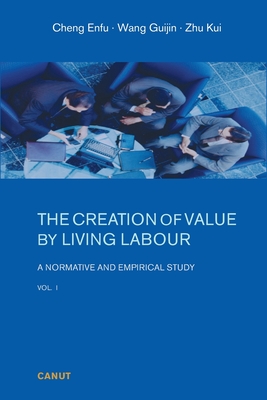The Creation of Value by Living Labour: A Normative and Empirical Study - Vol. 1

The Creation of Value by Living Labour: A Normative and Empirical Study - Vol. 1
A second obstacle to understanding the specific role of labor in emergent labor-intensive technologies is the exclusive focus of neoclassical economics on private production. The underlying assumption is that of an ideal system of production conducted by entirely distinct legal entities, each producing only for the market and interacting with others only through the market.
But the results of mental productive activities such as scientific labor, creative labor, and even management, increasingly take the form a general acquisition for society, which is therefore inherently social. Marx referred to this as "general social labor." Private labor, within an enterprise, draws both on this general social labor and on the inputs that it acquires through the market. The same also applies to much cultural labor, which forms part of the process through which labor power itself is reproduced, not least shaping its productive powers. The most obvious example of this is education, which even neoclassicals have to recognize, up to a point, as a "public good." China's economy involves a combination of ownership forms - public, private, and co-operative. Moreover, these ownership forms, under the definite and distinct conditions of Chinese society, are not necessarily the same as their formally identical equivalents in Western society, in exactly the same way that land ownership in 18th-century England, though formally the same as that prevailing in the French ancien régime of the same date, had already assumed capitalist characteristics far removed from those swept away in the revolution of 1789.
Even completely private capital operates under significantly greater and even qualitatively different public constraints in China than those found in fully capitalist economies, and is able to call on public r
PRP: 209.25 Lei
Acesta este Prețul Recomandat de Producător. Prețul de vânzare al produsului este afișat mai jos.
188.32Lei
188.32Lei
209.25 LeiLivrare in 2-4 saptamani
Descrierea produsului
A second obstacle to understanding the specific role of labor in emergent labor-intensive technologies is the exclusive focus of neoclassical economics on private production. The underlying assumption is that of an ideal system of production conducted by entirely distinct legal entities, each producing only for the market and interacting with others only through the market.
But the results of mental productive activities such as scientific labor, creative labor, and even management, increasingly take the form a general acquisition for society, which is therefore inherently social. Marx referred to this as "general social labor." Private labor, within an enterprise, draws both on this general social labor and on the inputs that it acquires through the market. The same also applies to much cultural labor, which forms part of the process through which labor power itself is reproduced, not least shaping its productive powers. The most obvious example of this is education, which even neoclassicals have to recognize, up to a point, as a "public good." China's economy involves a combination of ownership forms - public, private, and co-operative. Moreover, these ownership forms, under the definite and distinct conditions of Chinese society, are not necessarily the same as their formally identical equivalents in Western society, in exactly the same way that land ownership in 18th-century England, though formally the same as that prevailing in the French ancien régime of the same date, had already assumed capitalist characteristics far removed from those swept away in the revolution of 1789.
Even completely private capital operates under significantly greater and even qualitatively different public constraints in China than those found in fully capitalist economies, and is able to call on public r
Detaliile produsului










